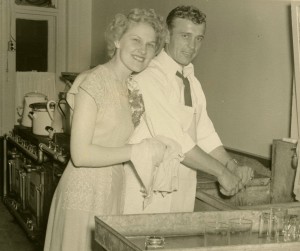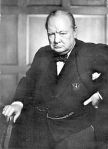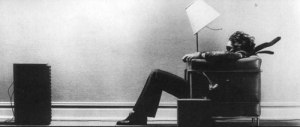If you look deeply into the palm of your hand, you will see your parents and all generations of your ancestors. All of them are alive in the moment. Each is present in your body. You are the continuation of each of these people – Thich Nhat Hanh, Buddhist monk
Like all parents, my mom and dad were flawed people – as I am. Yet, they were something more than that.
I’ve struggled to understand them much of my adult life; maybe more so now that they’re both gone. The nineteenth century German philosopher Arthur Schopenhauer once wrote: “The first forty years of life furnish the text, while the remaining thirty supply the commentary.” Maybe it isn’t till midlife that we really work hard to interpret the stories of our past. I believe there’s a strong urge in all of us to make a comprehensible story of one’s life at this juncture. And our parents are a large part of that tale.
The author of Slaughterhouse-Five, Kurt Vonnegut, a WWII veteran like my dad, wrote:
“The most important thing I learned was that when a person dies he only appears to die. He is still very much alive in the past, so it is very silly for people to cry at his funeral. All moments, past, present, and future, always have existed, always will exist. It’s just an illusion we have here on earth that one moment follows another one, like beads on a string, and that once a moment is gone it is gone forever.”
Now that I’m 50, I still wonder what role mom and dad played in my depression. Looking at the facts, I guess it’s all too obvious: drinking and mental health issues on both sides of the fence. In my most self-absorbed moments, I blame them and feel justified in doing so. In brighter moments of lucidity, I see that they, like me, were somebody’s children once. They didn’t start out in life the way they ended up – nobody does. They were, in a real sense, victims. This fact doesn’t excuse what happened; the real pain they inflicted on their children. But it does help me to understand their plights in life. And with that understanding comes some measure of peace, a peace of heart.
Turning the pages to our Past
Jonathan Frazen, author of the best-selling book Freedom about a family that struggles with depression, writes:
“Depression, when it’s clinical, is not a metaphor. It runs in families, and it’s known to respond to medication and to counseling. However truly you believe there’s a sickness to existence that can never be cured, if you’re depressed, you will sooner or later surrender and say: I just don’t want to feel bad anymore.”
Here’s Jonathan Frazen talking about his novel on PBS:
How much of our life is determined by our familial past? How much of it is spun by choices we make apart from that past? Apart from what happened to us at the hands of parents, can we really change? I believe that shifting through our past helps us to become “unstuck.” And after all, depression is about being stuck. We can’t go forward, if we can’t go backwards and to see the truth of about past.
There are some things we can change and some we can’t. We can’t change our genetics and scientists now know that the genes we inherit play a significant role in our vulnerability to depression. There is a gene that regulates how much of a chemical called serotonin is produced. Serotonin is a neurotransmitter. The amount of serotonin that flows to your brain influences your mood, and emotional state. Those whose serotonin transporters included a gene that was shorter than would be typically expected at a certain point had a harder time bouncing back after experiencing a stress event. Chronic stress and anxiety, as I’ve written about before, have a strong correlation to a vulnerability to clinical depression.
This bit of news makes me want to know my ancestors, these ghosts of my past. These folks and I have something in common: irksome chromosomes that could flip off the happy switch in our brains from time to time.
I heard on National Public Radio that there have been 60 generations that have lived and died since the time of Jesus. Since the extent of my knowledge about my family only goes back, at best, 100 years to the time of the birth of my grandparents, that leaves me about fifty-eight generations or 1900 years of emotional and genetic history unaccounted for. I wish there was some kind of recorded history of their lives because I am a continuation of them even as my daughter is of me.
Dad’s Story
Dad was born in Buffalo in 1926, the oldest of five born to immigrants from Poland. I never met my grandparents, but from family lore I’ve learned that they were tough people who lived even tougher lives: brute physical labor for their daily staple of meat and potatoes, playing pinochle while plumes of cigarette smoke wafted up to the ceiling and crates of cheap booze on the weekends. If you looked crossways at them, they’d likely belt you in the mouth.
Alcohol played a big role my family’s drama through the generations. Sometimes they drank at home, but more often in what my grandma called “Gin mills.” Men would cash their checks in these Polish joints, throw their money on long wooden bars sip draught beer as they talked about all the scraps they’d been in that week just trying to get along in life.
My dad grew up in this world. At 17, he went off to fight in the Pacific theater against the Japanese. War must have deeply affected him, as it does all young men. Robert E. Lee, writing of his experiences in the Civil War, wrote his wife in 1864:
“What a cruel thing is war; to separate and destroy families and friends, and mar the purest joys and happiness God has granted us in this world; to fill our hearts with hatred instead of love for our neighbors and to devastate the fair face of the earth.”
Last year, I read a New York Times review of a book out about J.D. Salinger, author of The Catcher in the Rye. The article notes that Salinger, who served in the infantry during WWII in Europe, witnessed a lot of death and mayhem and struggled with depression his whole life:
“Salinger’s experiences during WWII heightened his sense of alienation. The war left him with deep psychological scars, branding ‘every aspect’ of his personality and reverberating through his writings. Salinger had suffered from depression for years, perhaps throughout his entire life, and was at times afflicted by episodes so intense that he could not relate to others.”
Ultimately, he stopped publishing, moved into a cabin in rural Connecticut and practiced Yoga and Zen meditation.
Dad clearly suffered from undiagnosed depression and PTSD, something that would, like Salinger, haunt him for the rest of his life. But war can’t explain all misery, can’t explain the storms that would rage in his head. His younger brother Roman, also a war veteran, became an alcoholic. Dad’s younger sister suffered from depression and been treated for it with medication suggesting a possible genetic propensity in our family for the illness.
Mom’s Story
Mom, like dad, was also part of WWII generation. Her older brother Joe went off to war in the Pacific for three years. As fate would have it, he met my future Dad aboard a ship in the Philippines and said, “If we ever get the hell out of this shithole, I’ve got this cute, blonde sister back in Buffalo.” They survived, my parents met, fell in love and married.
Mom had an alcoholic father, also an immigrant from Poland. She recalled being asked by her mother to go find her dad on a regular basis when he didn’t return home after work. Often, during the harsh Buffalo winters, she would find him passed out in a snow bank. The only intimate moments she remembered sharing with him was when for her eighth birthday he took her to a Shirley Temple movie and bought her candy.
Mom and dad quickly had three kids. Things went well the first ten years of their marriage, but the wheels began to fall off from there on out: dad drank too much, became a gambler, womanized and had unpredictable outbursts of high octane rage. Mom collapsed back into herself and never really recovered. She began to eat a lot, added lots of pounds to her slender frame and watched T.V. all the time. Maybe the dopey sitcom narratives sliced through the quiet pain my mom carried – all the time – all of her life.
Dad died 32 years ago at the age of 56 (I was 19) from too much drinking and smoking. He died sort of unrepentant, never saying he was sorry for anything. But, in my own mind at least, I think he was sorry. I think he just couldn’t bring himself to say it because of the enormity of his sins. But I have learned to forgive him, this enemy of my childhood who I had wished as a boy that he would just die. The great poet Henry Wadsworth Longfellow once wrote:
“If we could read the secret history of our enemies we should find in each man’s life sorrow and suffering enough to disarm all hostility.”
As for my mom, well, she died almost two years ago at the age of 82 of brain cancer. I devoted a blog to her passing, but didn’t say just how difficult it was to really know mom. She was always somehow distant, like a star in the sky. She never had any friends, her family was her circle. She loved us, but often did not connect with her children; maybe because she had never been cherished as a child. She did, after all was said and done, the best she could and, in this sense, was so much easier to forgive and let go of than dad.
Walter – Second Edition
Walter, my oldest brother at age 59 and dad’s namesake, and I were walking back the other night to the parking lot after our hometown hockey team, the Buffalo Sabres, had taken a real shellacking. I asked him in the frosty, hidden darkness where men – – if they do at all – – share a sliver of their true inner lives: “Do you ever think of dad and what did he meant to you?” He replied, after a few huffing breaths: “Not really, just what a real asshole he was.”
My brother has never been in therapy, never taken antidepressants. But he had heroically forged ahead “carving out a living” as he was prone to say. Yet, I couldn’t help think about the profound effect dad’s abuse had had on him and my other three siblings. I wonder if he sometimes thinks about it at night while lying in bed with the windows cracked open on a hot summer’s night. Does he wonder why he can’t stop feeling bad about himself? Why he doesn’t feel more confidence? And the toughest part of it all, the thing that keeps me up at night when I think of my burly, big-hearted brother, is that he probably blames himself for all of these feekings as adult children of alcoholics are prone to do.
My Coming Around
As for me, a real veteran of therapy and antidepressant medications, I know all too well that my parents are still tangled up with me long after their deaths. My therapist once said that I had to work out the long buried grief of never having had the parents I needed. Over the years, I have done a lot of grieving for the childhood I didn’t have. Yet, as I was to learn, it wasn’t only my grief about my childhood troubles that I was to deal with, but for my parents as well. For the loss of their innocence, their difficult childhoods and all that they could have been.
Despite the pain in my family, there was love; fractured though it may have been. As he aged, I sensed that my dad knew that too much had gone wrong that he couldn’t fix. But in small gestures here and there, he showed affection and love. As my mom’s wake last May, I was privileged to give the eulogy. What I said was my mom’s defining quality wasn’t success, intelligence or gardening, but kindness – that this is where she planted her flowers that continue to grow in the hearts of her children and grandchildren. And what a gift that is. One that’s always in bloom.
My parents were both hopeless in their own ways. They were dealt a crummy hand in life. They were born with certain genes, into a family and time in history that they didn’t choose. The difference between them and me, the blessing that came out of my depression that didn’t for them, was that my pain forced me to finally confront my wounds and work hard to heal them – an ongoing project for us all. It forced me to examine the long unexamined within me. It gave me a choice: I could continue to live out my parents damaged views of life or embark on my own journey and discover what was real and true for me.
While it is true that none of us can avoid the pains and difficulties that come from living on this planet, what modulates the pain is love — pure and simple. Andrew Solomon, who has suffered from depression for much of his adult life, captured this in his book The Noonday Demon: An Atlas of Depression:
“Depression is a flaw in love. To be creatures who love, we must be creatures who can despair at what we lose, and depression is the mechanism of despair. When it comes, it degrades one’s self and ultimately eclipses the capacity to give or receive affection. It is the aloneness within us made manifest, and it destroys not only connection to others but also the ability to be peacefully alone with oneself. Love, though it is no prophylactic against depression, is what cushions the mind and protects it from itself.”
In the end, love really is the only thing that saves anybody.























